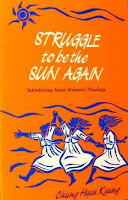University can be a great adventure. For some it will be the best three or four years of your life. For others who go on to become academics it can last a lifetime. For me it has been a twenty year journey as an undergraduate. It has been 20 years since I began as an arts undergraduate student, and even though I have switched universities, and been a Chaplain involved with a number of campuses, I still love being a student. This spring term marks my 10th year as a part-time student here at UW in Arts and my 20th year as a university student. Over those nearly two decades much has changed about university life and much has stayed the same. Therefore we will reflect on life, the university and everything.
The cost has gone way up. My first year at Queen's University tuition was $1579 for 8 months full time, which worked out to about $315 per credit; here at UW this year it will be about $1020 per credit for tuition. Yet even with the astronomical rise in costs, the university is a great place to be. At the same time, in nearly two decades, things on campus have stayed remarkably the same, even across two campuses. You meet great people, and some not so great people, both students and professors. You encounter professors who are good or even great researchers and thus bring money into the campus, but in reality should never be involved in instruction or at the front of a classroom or in public (Chris Burris). Other professors are so great they will leave a permanent mark on the rest of your life. Here at UW I have encountered both types. To be honest there are too many exceptional professors to list them all but one of my favourites if Dr. Peter Frick.
In each of the 5 courses I have taken with Dr. Frick, his first lecture is on the philosophy of education, examining questions about what is the purpose of universities, and why are we( the students in class) at university. This lecture draws heavily upon The Closing of the American Mind by Allan Bloom. It asks big questions and draws the students into dialogue with each other and with the big questions about the meaning of life. And in my experience that is what I love about being a student - being a student is about learning, it should never be just about getting a job or starting a career. University should be an opportunity to expand your horizons, to study and learn just for fun, for the love of learning.
When I started university at 18 I thought I had life all figured out - knew what I wanted, where I was going and how to get there. I believed I had all the answers. Now I spend more time trying to learn how to ask the right questions. C.S. Lewis once stated "The Future is something which everyone reaches at the rate of sixty minutes an hour, whatever he does, whoever he is." He also said "Mere change is not growth. Growth is the synthesis of change and continuity, and where there is no continuity there is no growth." I believe that what universities should teach us is how to do life, and how to do life better.
One of the ways that universities can do that is through the diverse opportunities to participate in campus life. This can be done through media, student, radio, newspapers and magazines, and also through social activities, such as student clubs and associations. On most Canadian university campuses, there are clubs and associations of religious varieties, physical activities, house league sports, and areas of personal interest, i.e. photography, gaming, archery, dance … Once you move beyond the university years most of these activities are much more expensive and many less readily available. In school you have the opportunity to get involved, explore interests and participate in such a wide variety of activities that you will not have again. You can develop hobbies and interests and participate in activities that can be a part of the rest of your life.
Much like the old Clint Eastwood western The Good, The Bad and The Ugly, in university and in life you will encounter all three from policies, to presuppositions to people who fit in all three categories. However in my experience over nearly two decades in universities, you encounter far more of the good than the other categories. For often in university even if your beliefs or opinions differ from those you encounter and dialogue with, the dialogue is more often than not respectful and intended as dialogue not just argument.
Yes academics are important, but the dialogue and your development as a person should be a larger part of your focus as an arts undergraduate student. Use your time at school not just to develop the brain, but also the body and the spirit. Learn to become whole, and to have a broader approach to Life the Universe and Everything. For working on being and becoming will take you much further in life than just your marks on a transcript. So embrace the adventure and make the most of your time here at the University of Waterloo.
(First Published in Imprint 2008-08-29 in the Frosh Supplement as 'Twenty Years of Undergrad Adventures'.)






















-St.-Ignatius-Layola.jpg)


